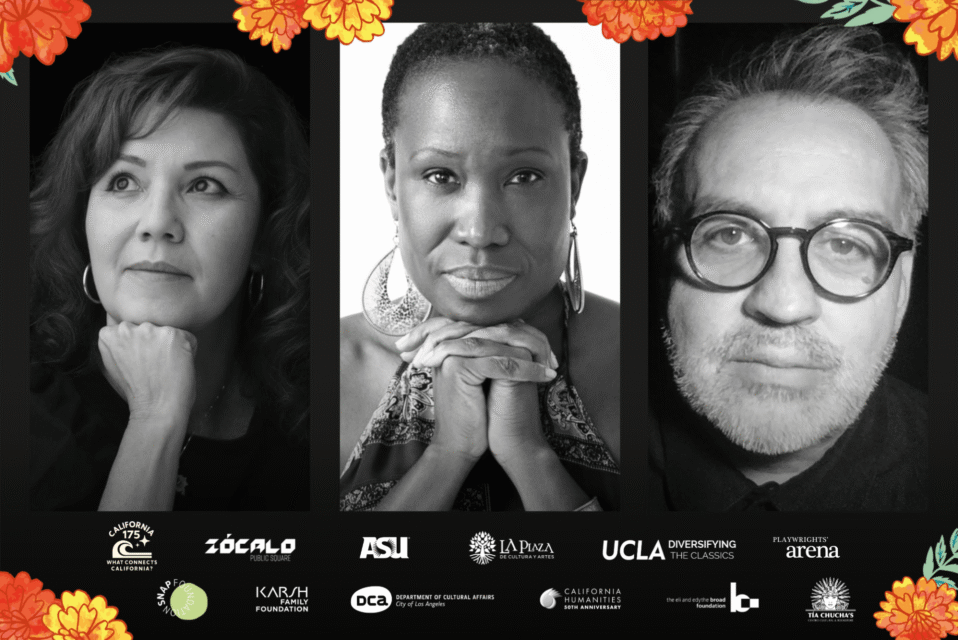Join us under the stars at LA Plaza de Cultura y Artes for readings of three adaptations from the 2024 anthology Golden Tongues: Adapting Hispanic Classical Theater in Los Angeles. Barbara Fuchs, director of UCLA’s Diversifying the Classics initiative, will introduce the central themes of the plays. Stay after the performance for a reception, where the playwrights will be signing copies of Golden Tongues
During the artistic and literary boom of Spain’s Golden Age, theater known as comedia helped audiences on both sides of the Atlantic understand their past and present. Today, contemporary playwrights have adapted these 17th-century classics to shed light on L.A.’s history, touching on issues including power and sexuality, gentrification, and Black, Korean, and Latino identity.
Playwrights Diana Burbano, June Carryl, and Luis Alfaro will offer brief pre-performance remarks and will sign copies of Golden Tongues, available for purchase from Tía Chucha’s, during a post-reading reception.
About the plays:
In Diana Burbano’s Flickers, a director in early 20th-century Los Angeles becomes embroiled in the perils of Hollywood: ambition and treachery, prejudice and plagiarism. In her version of Juan Ruiz de Alarcón’s La cueva de Salamanca (The Cave of Salamanca), Burbano recreates the magic of the first days of film while exploring its racism.
June Carryl’s Florence and Normandie adapts Pedro Calderón de la Barca’s Amar después de la muerte (To Love Beyond Death) and sets the action against the backdrop of the Rodney King uprising. As tensions boil, two families entwined by location and love find themselves living the American racial nightmare.
Painting in Red is Luis Alfaro’s “whitewash” of Calderón de la Barca’s El pintor de su deshonra (The Painter of His Own Dishonor), exploring a Chicano painter’s relationship to a real and imagined Spain and an endlessly gentrifying Los Angeles.
This program is co-presented by Zócalo Public Square, Playwrights’ Arena, UCLA Diversifying the Classics, and LA Plaza de Cultura y Artes, with generous support from Snap Foundation, Karsh Family Foundation, Broad Foundation, and Olga Garay-English.

